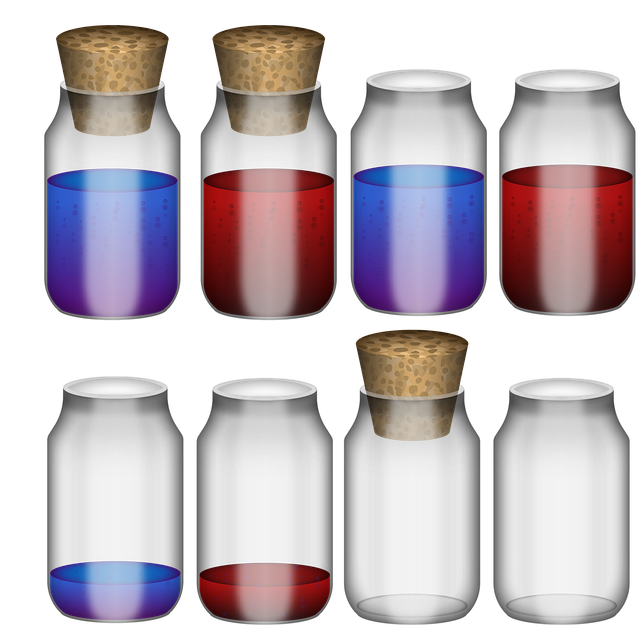Cognitive-Behavioral Therapy (CBT) offers a powerful, evidence-based approach to overcoming opioid addiction by addressing negative thought patterns and teaching practical coping skills. Techniques like mindfulness, relaxation, and behavioral activation promote positive thinking and healthier alternatives to substance use. Group counseling, online support groups, and stress management workshops create a supportive community, empowering individuals to manage triggers, cravings, and stress in early sobriety. CBT helps reframe negative thoughts, encouraging resilience and long-term wellness for effective opioid addiction recovery.
Cognitive-behavioral therapy (CBT) offers a powerful approach to overcoming opioid addiction by empowering individuals to challenge and reframe negative thoughts. This article delves into the effectiveness of CBT for managing opioid addiction, highlighting its core principle of reframing negative thoughts. We explore specific strategies and techniques that have proven vital in helping clients overcome addiction, providing insights on how to tackle this complex issue head-on.
- Understanding Cognitive-Behavioral Therapy (CBT) for Opioid Addiction
- Reframing Negative Thoughts: A Core Principle of CBT
- Strategies and Techniques in Overcoming Opioid Addiction with CBT
Understanding Cognitive-Behavioral Therapy (CBT) for Opioid Addiction

Cognitive-Behavioral Therapy (CBT) offers a powerful approach to addressing opioid addiction by helping individuals identify and change negative thought patterns associated with their substance abuse. This evidence-based method is designed to empower clients to take control of their recovery journey. By understanding how underlying cognitive distortions contribute to opioid use, CBT enables participants to reframe these thoughts and replace them with healthier alternatives.
In the context of overcoming opioid addiction, CBT focuses on teaching practical skills for managing cravings, stress, and triggers. It incorporates various techniques such as mindfulness exercises, relaxation strategies, and behavioral activation to promote positive coping mechanisms. Additionally, Group Counseling Sessions foster a supportive environment where individuals in recovery can share experiences, build empathy, and gain accountability from peers facing similar challenges. This sense of community is further enhanced through Recovery Support Groups Online, providing accessible resources for continuous support outside traditional therapy settings. Stress Management Workshops for Addiction Recovery also play a crucial role in CBT, teaching participants to navigate stressful situations without resorting to substance use as a coping mechanism.
Reframing Negative Thoughts: A Core Principle of CBT

Reframing negative thoughts is a core principle of Cognitive Behavioral Therapy (CBT), which has proven effective in helping individuals overcome challenges like opioid addiction. In CBT, clients are taught to identify and challenge distorted thinking patterns that contribute to negative emotions and behaviors. By questioning the validity and reality of these thoughts, individuals can develop more balanced and adaptive perspectives.
This process involves learning to replace self-critical or negative self-talk with more realistic and positive statements. For those struggling with opioid addiction, reframing could mean shifting from viewing themselves as “failed” or “unworthy” to recognizing the challenges they face and celebrating small victories in their recovery journey. With ongoing mental health help and support from recovery support services providing guidance and encouragement throughout the recovery journey, individuals can develop coping mechanisms that enhance resilience and promote long-term wellness.
Strategies and Techniques in Overcoming Opioid Addiction with CBT

Cognitive-behavioral therapy (CBT) offers powerful strategies to combat opioid addiction by addressing the underlying thoughts and behaviors that contribute to it. One key technique involves identifying and challenging negative thought patterns, such as self-destructive beliefs or distortions related to using opioids. By learning to reframe these thoughts, individuals can gain a healthier perspective on their addiction, reducing triggers and cravings.
Additionally, CBT encourages the development of adaptive coping mechanisms and healthy habits in early sobriety. This includes participating in stress management workshops that teach relaxation techniques and emotional regulation strategies. Recovery Support Services providing ongoing guidance and encouragement throughout the recovery journey also play a crucial role, offering accountability, personalized support, and valuable insights tailored to each individual’s unique challenges and successes.
Cognitive-behavioral therapy (CBT) offers a powerful approach to overcoming opioid addiction by focusing on reframing negative thoughts and behaviors. By understanding the core principles of CBT, individuals can learn effective strategies to challenge and change harmful thought patterns associated with addiction. This evidence-based method provides practical tools to enhance mental well-being and promote long-term recovery for those seeking to break free from the grip of opioid addiction. Discovering and implementing these techniques can be a transformative step towards a brighter, healthier future.






